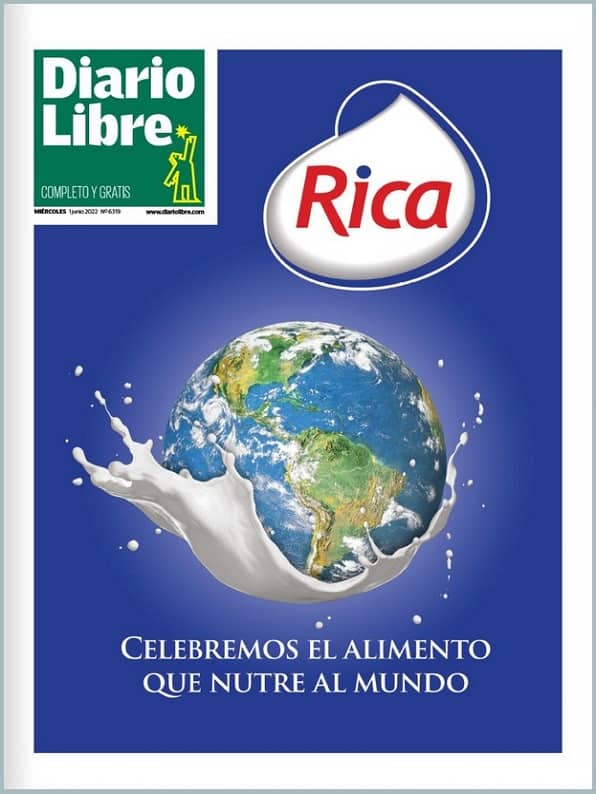Haiti's decision on ban is still pending

SANTO DOMINGO. The decision regarding the lifting of the ban on imports of chickens and eggs by Haiti has apparently been set aside right now.
Yesterday the Dominican government did not issue any official statement that would confirm whether or not the Haitian Council of Ministers had met in order to discuss the request to lift the ban which was presented on Wednesday by a commission of officials headed by the Minister of Industry and Commerce, Jose del Castillo Saviñon.
Nonetheless, a source close to the Dominican authorities confirmed that the Haitian ministers had met but did not reach a decision regarding the ban which is issued by the government of the neighboring country last Thursday alleging the supposed presence of bird flu in the Dominican Republic.
This prohibition was ordered without lifting a previous ban ordered in 2008 for the same reason.
On Wednesday the Minister of Agriculture, Luis Ramon Rodriguez said that according to what was explained by the Haitian authorities, the ban was the result of "some confusion" after "the press in Haiti apparently confused what is the AH1N1 virus (human influenza or grippe) with the H5N2 virus (the bird flu)."
"They admitted that they had to preserve the health of the Haitian people and the first thing was to close the frontier and then obtain the information. This is what they told us," noted Rodriguez.
No chickens, no eggs
From Dajabon the news came yesterday that the bi-national market which takes place on the frontier of the province with Haiti will be open today but without the sale of chickens or eggs.
In the face of this situation, the Association of Merchants in the province announced that they would call for a commercial strike for next Monday, with the aim of pressuring for a definitive solution regarding the ban from both governments.
In the meantime the National Association of Egg Layer Producers (Asonaprop) said that it had begun the killing of thousand of laying hens in order to reduce the losses, alleging that at the present time there is an overproduction of eggs which have no market.
No effects on relations
At the same time, Chancellor Carlos Morales Troncoso said yesterday that the impasse will not affect the bilateral relations since similar inconveniences have occurred on other occasions and have been overcome.
Interviewed at the Presidential Palace after taking part in the meeting of the National Council for the Prevention, Relief and Response to Disasters, he stressed the good personal relationship between President Danilo Medina and his Haitian counterpart, Michel Martelly.
Given the decision that Haiti took regarding the ban on the sale of chickens and eggs, the government of the Dominican Republic has started a process of contacts with the idea of exporting those products to new international markets.
Upon offering this information yesterday the Minister of Industry and Commerce, Jose del Castillo Saviñon, said that they have already talked with Venezuela, a nation that would be interested in acquiring 60,000 qq (quintals = 100 lbs) of chicken, a purchase that would go through the mechanism of Petrocaribe, in addition to the export of black beans.
Questioned regarding whether or not they will do business with Venezuela, he explained that the Ministry of Hacienda would pay the poultry farmers and that the production would be sent to Venezuela, which would serve to compensate the debt that the country has with Petrocaribe.
"We are taking an aggressive attitude in the different markets, above all those where we have free trade agreements which also offer us advantages to place out products," he noted when he was interviewed at the Presidential Palace.
Del Castillo Saviñon made a point of indicating that the process of seeking new markets does not affect in any way should Haiti decide to reconsider the measure which prohibits the sale of chickens and eggs, a decision for which the Dominican government has not been formally notified.
"We are looking for markets all the time and the national producers also have an interest in placing their products in different markets. Naturally Haiti is a obligatory market because we share the island and we are forced to travel a common road and moreover they have a large deficit in the production of many items," he noted.
Exchange
Regarding the commercial exchange with Haiti each year, he said that this commerce is around US$2.0 billion in goods, of which US$1.3 billion are from formal businesses and the rest belongs to the informal sector.
"Chickens are a very good alternative for the Venezuelan market, but everything will depend on the levels and the production capacity. We have to have a competitive product which can achieve access to competitive markets," he added.
Yesterday the Dominican government did not issue any official statement that would confirm whether or not the Haitian Council of Ministers had met in order to discuss the request to lift the ban which was presented on Wednesday by a commission of officials headed by the Minister of Industry and Commerce, Jose del Castillo Saviñon.
Nonetheless, a source close to the Dominican authorities confirmed that the Haitian ministers had met but did not reach a decision regarding the ban which is issued by the government of the neighboring country last Thursday alleging the supposed presence of bird flu in the Dominican Republic.
This prohibition was ordered without lifting a previous ban ordered in 2008 for the same reason.
On Wednesday the Minister of Agriculture, Luis Ramon Rodriguez said that according to what was explained by the Haitian authorities, the ban was the result of "some confusion" after "the press in Haiti apparently confused what is the AH1N1 virus (human influenza or grippe) with the H5N2 virus (the bird flu)."
"They admitted that they had to preserve the health of the Haitian people and the first thing was to close the frontier and then obtain the information. This is what they told us," noted Rodriguez.
No chickens, no eggs
From Dajabon the news came yesterday that the bi-national market which takes place on the frontier of the province with Haiti will be open today but without the sale of chickens or eggs.
In the face of this situation, the Association of Merchants in the province announced that they would call for a commercial strike for next Monday, with the aim of pressuring for a definitive solution regarding the ban from both governments.
In the meantime the National Association of Egg Layer Producers (Asonaprop) said that it had begun the killing of thousand of laying hens in order to reduce the losses, alleging that at the present time there is an overproduction of eggs which have no market.
No effects on relations
At the same time, Chancellor Carlos Morales Troncoso said yesterday that the impasse will not affect the bilateral relations since similar inconveniences have occurred on other occasions and have been overcome.
Interviewed at the Presidential Palace after taking part in the meeting of the National Council for the Prevention, Relief and Response to Disasters, he stressed the good personal relationship between President Danilo Medina and his Haitian counterpart, Michel Martelly.
Given the decision that Haiti took regarding the ban on the sale of chickens and eggs, the government of the Dominican Republic has started a process of contacts with the idea of exporting those products to new international markets.
Upon offering this information yesterday the Minister of Industry and Commerce, Jose del Castillo Saviñon, said that they have already talked with Venezuela, a nation that would be interested in acquiring 60,000 qq (quintals = 100 lbs) of chicken, a purchase that would go through the mechanism of Petrocaribe, in addition to the export of black beans.
Questioned regarding whether or not they will do business with Venezuela, he explained that the Ministry of Hacienda would pay the poultry farmers and that the production would be sent to Venezuela, which would serve to compensate the debt that the country has with Petrocaribe.
"We are taking an aggressive attitude in the different markets, above all those where we have free trade agreements which also offer us advantages to place out products," he noted when he was interviewed at the Presidential Palace.
Del Castillo Saviñon made a point of indicating that the process of seeking new markets does not affect in any way should Haiti decide to reconsider the measure which prohibits the sale of chickens and eggs, a decision for which the Dominican government has not been formally notified.
"We are looking for markets all the time and the national producers also have an interest in placing their products in different markets. Naturally Haiti is a obligatory market because we share the island and we are forced to travel a common road and moreover they have a large deficit in the production of many items," he noted.
Exchange
Regarding the commercial exchange with Haiti each year, he said that this commerce is around US$2.0 billion in goods, of which US$1.3 billion are from formal businesses and the rest belongs to the informal sector.
"Chickens are a very good alternative for the Venezuelan market, but everything will depend on the levels and the production capacity. We have to have a competitive product which can achieve access to competitive markets," he added.


 Diario Libre
Diario Libre
 Diario Libre
Diario Libre